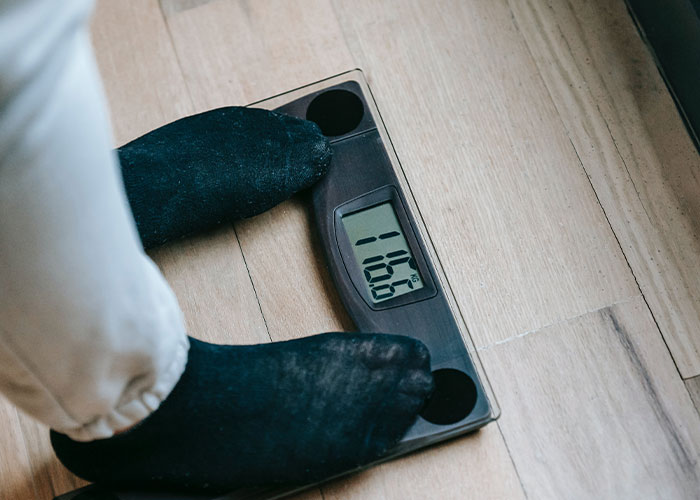From the mystic fountain of youth to sinister rituals, humans have been obsessed with immortality since the beginning of time.
Whilst death is an inevitable part of human life, there are ways to prolong the length of our lives.
Studies have concluded that an estimated 25% of our longevity is determined by our genes, yet, the rest is seemingly determined by what we do, day to day.
And while at this time of the year, plenty of people will make the resolution to better themselves, especially their health, there are no quick fixes when it comes to lengthening our life expectancies.
Nevertheless, science is clear on the key principles, as revealed by Associate Epidemiology Professor from Deakin University Hassan Vally. Bored Panda takes a look at five things you can do to extend your lifespan and improve your health.

Image credits: DrHassanVally
1. Eat a more plant-based diet
Evidence compellingly shows that eating a diet high in plant-based foods is associated with health and longevity.
A plant-based diet is a diet consisting mostly or entirely of plant-based foods. It typically includes high amounts of fiber-rich plant products such as vegetables, fruits, whole grains, legumes, nuts, and seeds.
If you eat more plant-based foods and less meat, processed foods, sugar, and salt, you reportedly lower your risk of a range of illnesses that shorten our lives, including heart disease and cancer.
Plant-based foods are rich in nutrients, phytochemicals, antioxidants, and fiber. They’re also anti-inflammatory. All of this protects against damage to our cells as we age, which helps prevent disease.
One of the most studied and healthiest diets is the Mediterranean diet, which is based on the eating patterns of people who live in countries around the Mediterranean Sea and emphasizes vegetables, fruits, whole grains, legumes, nuts and seeds, fish and seafood, and olive oil.

2. Try to maintain a healthy weight
According to Healthline, obesity increases the risk of a number of health problems that shorten our lives.
Moreover, obesity, which is considered to be a disorder involving excessive body fat, puts strain on all of our body systems and has a whole myriad of physiological effects including inflammation and hormonal disturbances.
These health issues increase your chances of a number of diseases, including heart disease, stroke, high blood pressure, diabetes, and a number of cancers.
In addition to affecting us physically, obesity is also associated with poorer psychological health, as well as being linked to depression, low self-esteem, and stress.

3. Try to do a physical activity regularly
Exercising regularly reportedly protects against chronic illness, lowers your stress, and improves your mental health.
While one of the ways doing such physical activity aids you is by supporting you to control your weight and lowering your body fat levels, the effects are reportedly broader and include improving your glucose (blood sugar) use, lowering your blood pressure, reducing inflammation and improving blood flow and heart function.
Studies suggest that any way you can include physical activity in your day has health benefits.
The World Health Organization recommends at least 150 to 300 minutes of moderate aerobic activity per week (or the equivalent of vigorous activity) for all adults and an average of 60 minutes of moderate aerobic physical activity per day for children and adolescents.
For general fitness, most adults should aim for 10,000 steps per day, with fewer than 5,000 steps being a sign of a sedentary lifestyle, as per Medical News Today.

4. Don’t smoke or vape
Smoking cigarettes reportedly affects almost every organ in the body and is associated with both a shorter and lower quality of life.
There is no safe level of smoking – every cigarette increases your chances of developing a range of cancers, heart disease, and diabetes.
Even if you have been smoking for years, by giving up smoking at any age you can experience health benefits almost immediately, and you can reverse many of the harmful effects of smoking.
Switching to vaping isn’t a healthy long-term option, as the long-term health effects of vaping are not fully understood and they come with their own health risks.

5. Socialize
According to Science Alert, when we talk about living healthier and longer, we tend to focus on what we do to our physical bodies. But one of the most important discoveries over the past decade has been the recognition of the importance of spiritual and psychological health.
People who are lonely and socially isolated reportedly have a much higher risk of dying early and are more likely to suffer from heart disease, stroke, dementia as well as anxiety and depression.
Although we don’t fully understand the mechanisms, it’s likely due to both behavioral and biological factors.
While people who are more socially connected are more likely to engage in healthy behaviors, there also seems to be a more direct physiological effect of loneliness on the body.
So if you want to be healthier and live longer, build and maintain your connections to others.
Hassan Vally, Associate Professor, Epidemiology, Deakin University.
And if you aren’t too keen to talk to other people, get a dog. According to The Healthy, data suggest people with dogs tend to live longer.
Based on the currently available research, it seems that most of this positive benefit stems from two major factors: Dogs can improve your cardiovascular health by promoting greater rates of physical activity, and they also bestow you with a sense of social connection.








